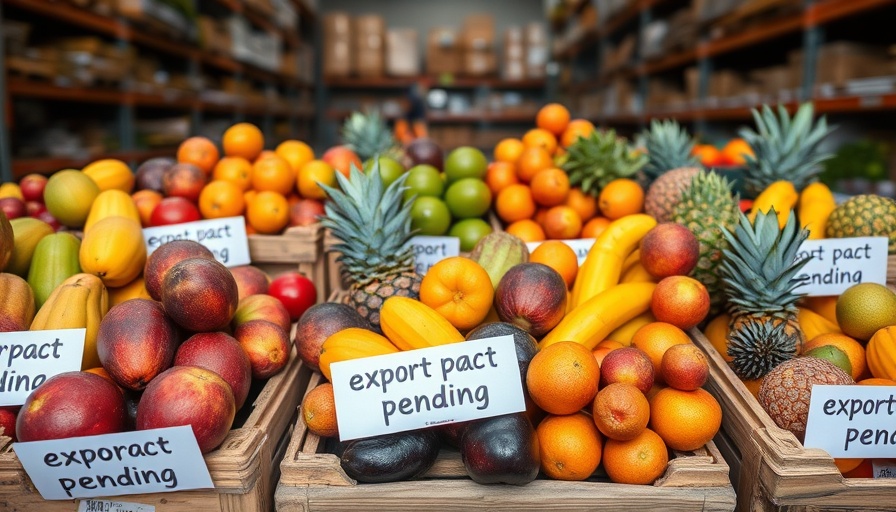
Gagan Gupta: Catalyst for Industrial Revolution in Africa
Gagan Gupta, the visionary CEO of ARISE Integrated Industrial Platforms (IIP), is not just expanding his portfolio but is spearheading a transformative industrial blueprint across Africa. With a unique approach to special economic zones (SEZs), Gupta's model is gaining traction among various African nations eager to boost their economic portfolios and invite foreign investments.
A Strategic Expansion Across Continents
With the recent surge in capital investments, including a remarkable $443 million raised from Afreximbank and Africa Finance Corporation, Gupta's expansion is characterized by a deliberate push into diverse sectors ranging from timber to textiles. The infusion of funds has enabled ARISE IIP to enhance its operations in key countries like Nigeria, Cameroon, and Rwanda, positioning them to play critical roles in Africa's industrial landscape.
The Need for Customized Industrial Zones
Gupta's vision of customized industrial zones (CIZs) is a game changer for African economies. Unlike traditional industrial zones, CIZs are tailored to meet the unique needs of local communities and industries. This approach not only enriches the local economy but also increases employment opportunities, thereby addressing critical issues like poverty, youth unemployment, and economic disenfranchisement.
Promoting Pan-African Trade Through Innovation
Gupta’s emphasis on innovation aligns seamlessly with the African Continental Free Trade Area (AfCFTA), which seeks to enhance intra-African trade by reducing tariffs and improving access to markets. By implementing cutting-edge technologies and fostering local entrepreneurship, the ARISE model is a perfect complement to the ambitions of AfCFTA, helping solidify Africa's standing in global trade dynamics.
Building Infrastructure to Empower Future Generations
The infrastructure component of Gupta's strategy is pivotal. Investments aimed at improving transport, logistics, and communication are essential for integrating rural economies into broader national and international markets. This aligns with broader goals of sustainable development and economic resilience, which are crucial in the face of challenges such as climate change and political unrest.
Fostering Innovation and Technology in Africa
As a leader deeply invested in technological transformation, Gupta envisions integrating innovations like mobile money and blockchain technology into industrial operations. This progressive stance not only enhances operational efficiencies but also contributes to financial inclusion and security, encouraging a culture of innovation critical for Africa’s growth trajectory.
A Future-Forward Perspective: The Role of Youth Empowerment
A key pillar in Gupta's vision is empowering the African youth. By investing in education and vocational training, the initiative aims to equip the younger generation with relevant skills, ensuring they become active participants in their economies. This focus on youth not only mitigates unemployment but also encourages entrepreneurship, which is vital for fostering a self-sustaining economic environment.
Connect, Collaborate, and Engage for a Brighter Tomorrow
As Gupta forges partnerships with heads of state and engages other stakeholders, it underscores the need for collective action in addressing Africa's complex challenges. By fostering collaboration among governments, private sectors, and communities, Gupta's initiative can create a powerful network dedicated to Africa's industrial and economic upliftment.
In summary, Gagan Gupta's targeted approach to expanding customized industrial zones across Africa promises to rejuvenate economies, empower youth, and ultimately foster a sense of pan-African unity and resilience. Stakeholders from various sectors should rally behind these initiatives to leverage their potential for economic transformation and contribute towards a sustainable future.
 Add Row
Add Row  Add
Add 




Write A Comment